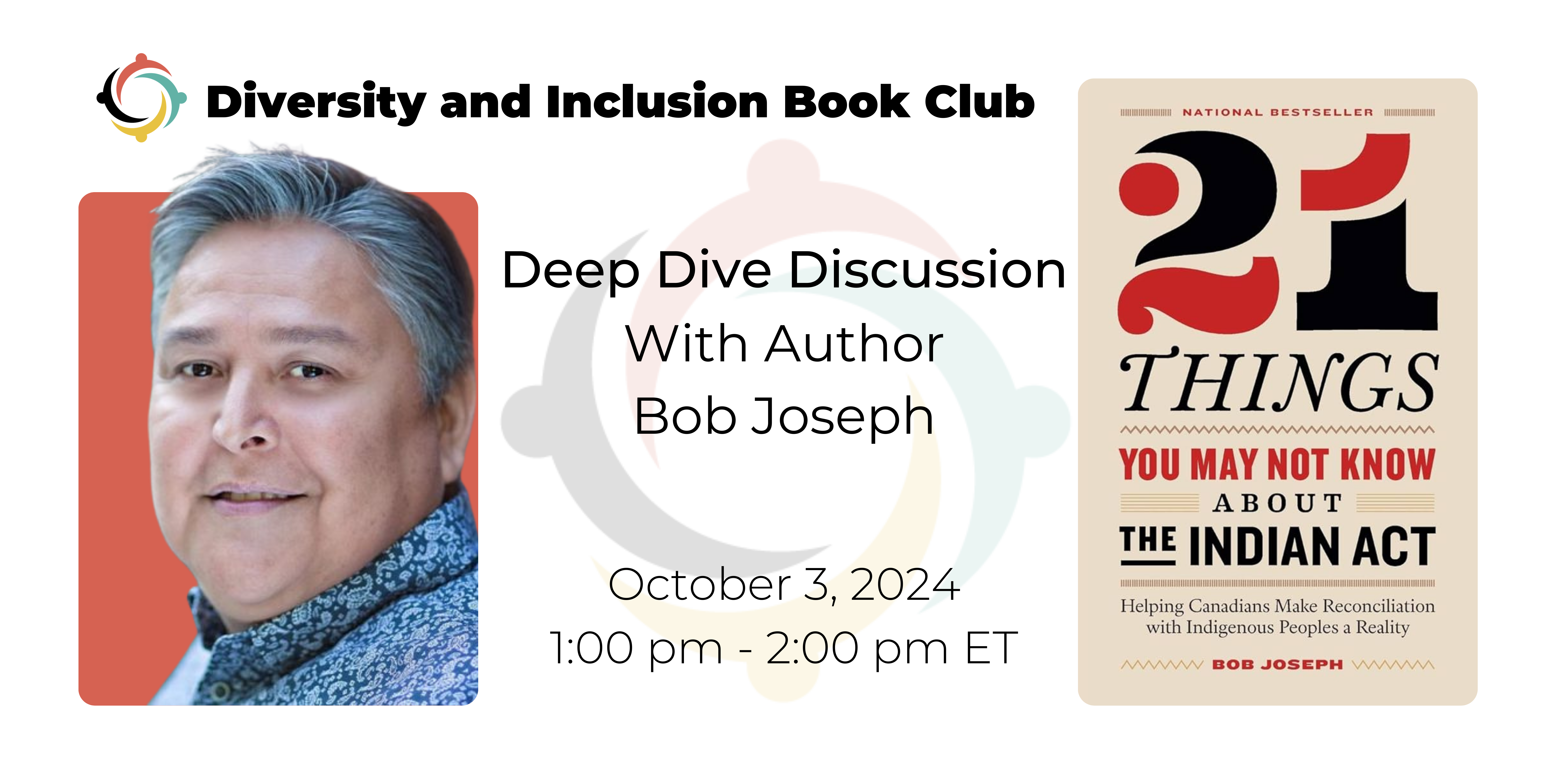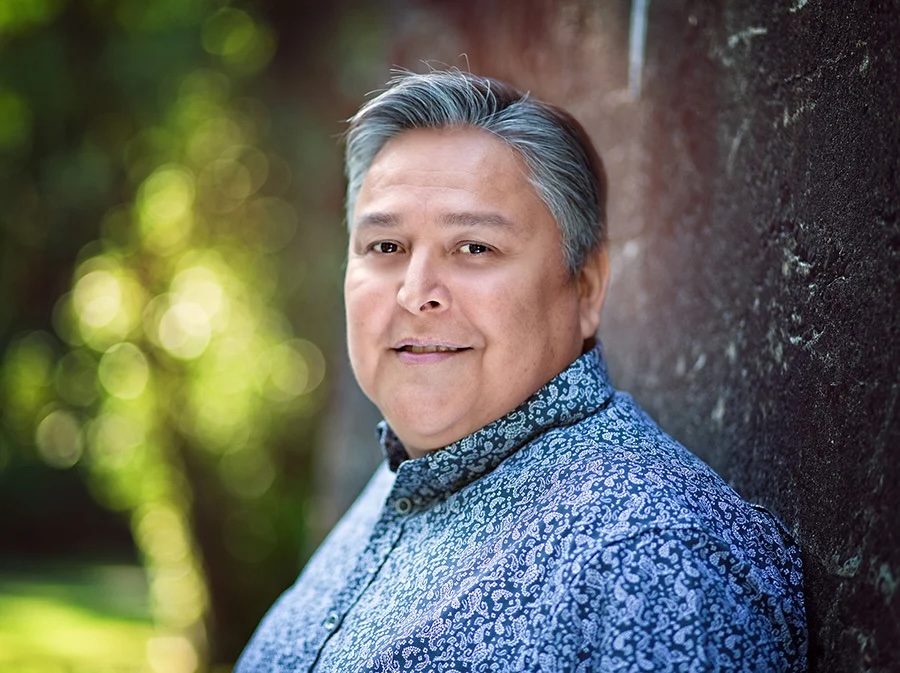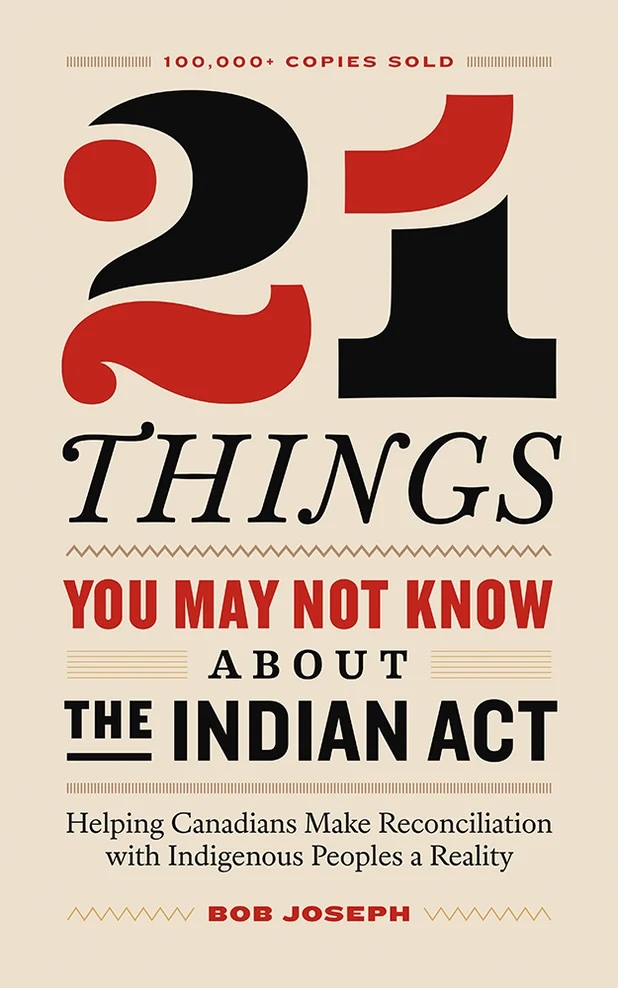Important: The GCConnex decommission will not affect GCCollab or GCWiki. Thank you and happy collaborating!
Planting the Seeds of the Future: A Conversation with Indigenous Thought Leader Bob Joseph
Planting the Seeds of the Future: A Conversation with Indigenous Thought Leader Bob Joseph
As part of the programming around the National Day for Truth and Reconciliation, the Diversity and Inclusion Office (DIO) of the Materiel Group at National Defence hosted a conversation with Indigenous thought leader Bob Joseph.
The event, open to all public servants and military members, provided a platform for discussing crucial topics such as the 94 Calls to Action from the Truth & Reconciliation Commission, the use of respectful and appropriate language in conversations with and about Indigenous people, and the importance of learning history to create more inclusive spaces in our organizations.
The event took the form of a Q&A session and was thoughtfully moderated by the hosts, Samantha Moonsammy and Major-General Rob Dundon.
Land Acknowledgements and the Public Service
After the opening remarks and a land acknowledgement from the hosts, Bob Joseph began by commenting on the long relationship between Indigenous peoples and the Canadian Armed Forces. He explained that land acknowledgements have their genesis in the Royal Proclamation issued by King George III on October 7, 1763, which was the first acknowledgement of Aboriginal title by the Crown.
Bob shared that opening events with land acknowledgements in the Defence Team is important because it recognizes the historical relationship between the Canadian government and Indigenous nations and helps keep these relationships alive in the present. He said that by beginning with these remarks, the public service is doing “what King George III did, recognizing the Nations and that [they] owned the land.”
But land acknowledgements are not the only step public servants can take towards reconciliation. Events like this one, Bob explained, are also necessary. He pointed out that the Truth and Reconciliation Commission’s 57th Call to Action specifically calls public servants across Canada to learn Indigenous histories and present realities, and that by attending this event, the 270+ public servants in attendance were helping to answer that call.
Language & Education
Responding to a question, Bob then explained the best way to use the appropriate language when talking about Indigenous people and nations: through research! Bob shared a history of the terms used by and about Indigenous groups. Since there are so many different nations, the best thing anyone can do to ensure the use of proper language is to research each group to determine what words they use to refer to themselves—and then use that language. This small step of doing a little research ahead of time will go a long way in the use of appropriate language and building strong relationships.
Finally, Bob closed the session by reemphasizing the importance of learning about the past to be able to build better, more inclusive futures. Education was one of his primary goals when writing his bestselling non-fiction book 21 Things You May Not Know about the Indian Act, and it is something he aims to do with his next book, which will be on Indigenous self-governance.
In attending sessions like this one, and in participating in programs like the Lifting as you Lead Mentoring Circles (LLMC) program, Bob explained that participants are “planting the seeds of the tree that our children will get shade from and be fed by”: in short, creating a diverse, inclusive, and safe future for all.
Indigenous Learning Resources
- Read the Truth & Reconciliation Reports
- Read the Truth & Reconciliation Commission 94 Calls to Action
- Indigenous Learning Products (CSPS)
- Learning resources about First Nations, Inuit, and Métis across Canada (CIRNAC)
Recording
About the Diversity and Inclusion Book Club
Together we will read 6 books a year and explore the following questions:
- What challenged you in the book?
- What did you enjoy about the book?
- And, how do you relate what you read to our organization?
Everyone is welcome to join The Book Club. A Book Club creates an intentional space and time to discuss topics related to diversity, equity, and inclusion (DEI) in the workplace. We look forward to including you in our Book Club! Inclusions means everyone, always.
Our Next Books
- December 5, 2024 - Feeling Seen: Reconnecting in a Disconnected World with author Dr Jody Carrington
- February 6, 2025 - Indivisible: How to Forge Our Differences into a Stronger Future with author Denise Hamilton



